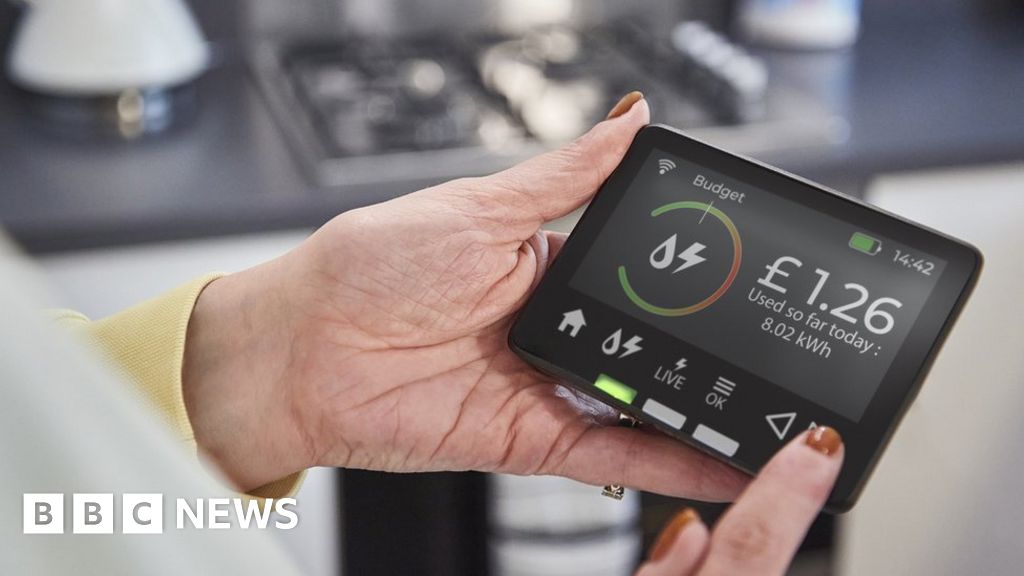Warning Winter Energy Bills Will Be Harder To Cope With

Winter will be harder for many households because they have less financial resilience to deal with high energy bills, MPs have been told.
Charities said that energy debts were higher than a year ago and people were making "dangerous choices" as they tried to keep bills down.
That included people cooking on barbecues, to avoid using gas.
The typical household bill will fall in October, but remains high by historical standards.
Energy regulator Ofgem's price cap, which affects 29 million households in England, Wales and Scotland, means a home using a typical amount of gas and electricity and paying by direct debit currently pays £2,074.
This will fall to £1,923 between 1 October and 31 December.
Specifically, the price of gas will fall from 7.5p per kilowatt hour (kWh) now to 6.89p for the final three months of the year. The price of electricity will fall from 30.1p per kWh to 27.35p.
Domestic energy bills will be lower than the £2,500 a year paid last winter and spring, when the government stepped in to limit further rises. Prices rose following Russia's invasion of Ukraine.
But last winter's government-funded £400 discount to every household, which was paid in six instalments between October and March, has finished and will not be repeated.
And costs are much higher than in winter 2021, when the annual energy bill for a typical household was £1,277.
Debt worries mount
In a wide-ranging hearing, charities told the Energy and Net Zero Select Committee of MPs that the pressure on vulnerable customers in particular would be worse in the coming winter compared with the last.
The cumulative effect of the rising cost of living meant things would be tougher, according to Gillian Cooper, of Citizens Advice.
Simon Francis, from the End Fuel Poverty Coalition, said: "The signs are that people are going to be struggling more in cold, damp homes this winter.
"Essentially though what we end up with is a situation where we have to hope we have a mild winter, and I don't think that households around the country would really accept that as being acceptable."
Adam Scorer, chief executive of National Energy Action, said: "Whether they like it or not, government is going to have to come up with a package of financial support for energy bills for the most vulnerable this year."
Among the other suggestions from charities were:
- Removing standing charges when it gets cold
- A better mechanism to help people repay energy debts, or writing them off
- The removal of old prepayment meters, to be replaced with smart meters
- Better systems to identify those at risk of falling behind on bills
- A social tariff for the most vulnerable
The committee continually challenged suppliers on how they were helping those in need, rather than prioritising profits.
Representatives from some of the biggest suppliers told MPs that they were supporting customers with credit on meters, and debt relief. They called on the government to provide ongoing support to those who were more vulnerable and improve energy efficiency schemes.
Notably, Chris O'Shea, chief executive of British Gas owner Centrica, called for one single gas price and one single electricity price for consumers, rather than a separate standing charge and regional variations.
A spokesman for the Department for Energy Security and Net Zero spokesperson said: "We recognise people are concerned about cost of living challenges and we will continue to support vulnerable people with their energy bills.
"Energy prices have now fallen significantly and we are keeping options under review, including for the most vulnerable."
Here are some energy saving ideas from environmental scientist Angela Terry, who set up One Home, a social enterprise that shares green, money-saving tips:
- Get a water-efficient shower head free of charge from your water company and use showers rather than baths
- Consider loft insulation, which she says costs around £680 for a typical semi-detached home and could save £285 a year on gas bills
- Hang out washing instead of using a tumble dryer, and walk instead of drive when possible
- Use windy days to feel where draughts are in the house. Wetting the back of your hand helps to locate them, then use insulation or draught-proofing tape
- Where available, press the smaller button to use less water to flush the toilet
From Chip War To Cloud War: The Next Frontier In Global Tech Competition
The global chip war, characterized by intense competition among nations and corporations for supremacy in semiconductor ... Read more
The High Stakes Of Tech Regulation: Security Risks And Market Dynamics
The influence of tech giants in the global economy continues to grow, raising crucial questions about how to balance sec... Read more
The Tyranny Of Instagram Interiors: Why It's Time To Break Free From Algorithm-Driven Aesthetics
Instagram has become a dominant force in shaping interior design trends, offering a seemingly endless stream of inspirat... Read more
The Data Crunch In AI: Strategies For Sustainability
Exploring solutions to the imminent exhaustion of internet data for AI training.As the artificial intelligence (AI) indu... Read more
Google Abandons Four-Year Effort To Remove Cookies From Chrome Browser
After four years of dedicated effort, Google has decided to abandon its plan to remove third-party cookies from its Chro... Read more
LinkedIn Embraces AI And Gamification To Drive User Engagement And Revenue
In an effort to tackle slowing revenue growth and enhance user engagement, LinkedIn is turning to artificial intelligenc... Read more

